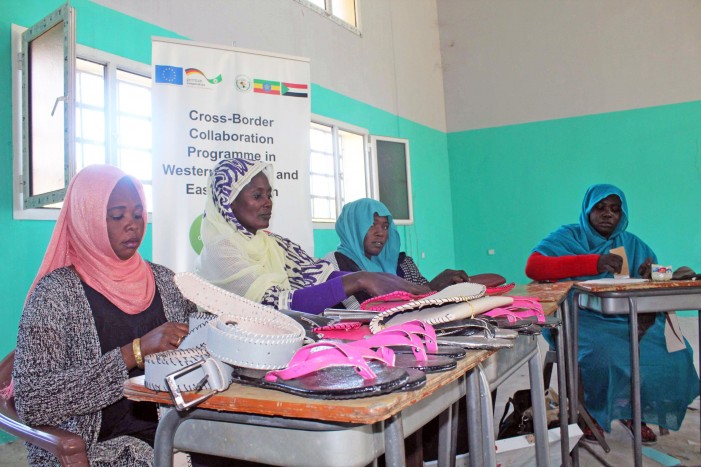Leather processing workshops for women at vocational training centre in Ad-Damazin, Blue Nile State, Sudan
In order to build the resilience of women in Blue Nile State, Sudan, the Cross-border Collaboration Programme in Western Ethiopia and Eastern Sudan supports the vocational training centre in Ad-Damazin to train aspiring entrepreneurs in leather processing crafts. Through the support of the programme, women in the region learn how to produce marketable leather products, which they can sell in local markets to increase their monthly income. Alternatively, they can use their skills to find employment.
From December 2019 to February 2020 three initial short courses took place. Seventy women from different localities and social backgrounds in Blue Nile State, among them 37 youth between 15 and 24 years of age, attended the training. At the end of the training, they received certificates.
The 70 were selected from a pool of 95 applicants, in a selection process that lasted for three days. The programme’s selection criteria gave priority to young women from fragile areas outside of Ad-Damazin and other localities, Internally Displaced Persons (IDP), and women from communities with high interest in leather works and a clear plan for their future as entrepreneurs.
The 10-day short course consists of nine modules covering craft and business skills. Participants learn about safety measures at the work place, how to handle tools, how to select and measure materials and practice cutting and stitching leather. By the end of this training, all participants are able to produce simple leather works such as handbags, shoes and wallets.
Awadia, who lives in Ad-Damazin used to be a cleaner before the training. Now she makes and sells leather products in her neighbourhood. “I am very happy with what I am doing. I earn much more money than in my cleaning job,” says Awadia. Assisted by her two daughters, Awadia makes in three months, what she made in one whole month as a cleaner.
Another participant, Nawal, lives in an IDP camp outside of Ad-Damazin. After her training, she started producing leather handbags and belts with the help of her family. She sells her products in the camp. She has overcome the financial difficulties she had is now able to help the family. This has made her father proud.
After each of the three workshops, the women who participated filled a post-training questionnaire. According to their responses, the women appreciate the training and feel better prepared for the job market. Most women expressed the need for further training on how to run a business.

Leather workshop in Sudan. Photo: GIZ/Murtada Ahmed.
The three workshops will soon be followed by an advanced course on leather processing and further supported by training on entrepreneurship skills development on how to start a business.
The trainings are interventions by the Cross-border Collaboration Programme in Western Ethiopia and Eastern Sudan which is implemented by the Gesellschaft für Internationale Zusammenarbeit (GIZ) on behalf of the Federal Ministry for Economic Cooperation and Development (BMZ) of Germany and the European Union. Activities are implemented in cooperation with government institutions of both Ethiopia and Sudan as well as the Intergovernmental Agency on Development.
The programme supports vocational training with a focus on young people on both sides of the border in Blue Nile State, Sudan, and in Benishangul-Gumuz, Ethiopia, so that youth can be more economically active, acquire access to employment or start their own business.
The programme develops and enhances economic opportunities in the Benishangul-Gumuz / Blue Nile State border area in order improve overall living conditions and to reduce conflicts. This includes helping communities to better withstand shocks (such as harvest failures) and increase cross-border collaboration. The goal is to strengthen the population’s resilience to instability and displacement. As one of its main focuses, the programme targets the economic needs of young people and women.
For more information on the programme please follow this link: https://www.giz.de/en/worldwide/73161.html

